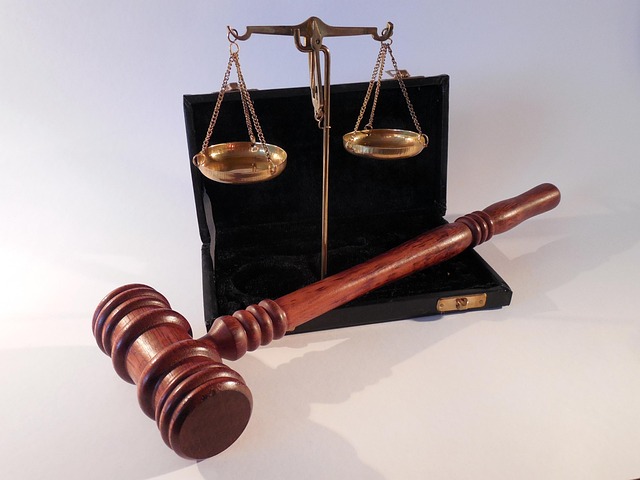The impact of jury demographics on verdicts in securities class actions is significant. Diverse juries deliver fairer outcomes by considering varied perspectives and backgrounds. Demographic factors influence interpretations of evidence, leading to potential dismissals or substantial awards. Understanding these impacts is vital for achieving unbiased judgments, with strategies like thorough jury selection and evidence presentation mitigating biases to ensure a fair trial in complex financial cases.
Securities class actions, a powerful legal tool for investors, involve collective litigation against corporations accused of securities fraud. This article delves into the intricate legal framework surrounding these cases, focusing on a critical aspect often overlooked: the impact of jury demographics on verdicts. We explore how demographic factors influence jury composition and potentially affect fairness, addressing strategies to mitigate biases. Understanding these dynamics is essential in navigating complex class action litigation, especially with regard to the impact of jury demographics on verdicts.
- Understanding Securities Class Actions: A Legal Framework
- Jury Composition: Demographic Factors at Play
- Impact on Verdicts: Bias and Fairness Concerns
- Strategies for Mitigating Potential Biases
Understanding Securities Class Actions: A Legal Framework

Securities Class Actions are a powerful legal tool designed to protect investors and ensure corporate accountability. At their core, these actions involve groups of investors joining forces to sue companies or individuals for misconduct related to securities—a process that can lead to significant financial recoveries. The legal framework surrounding these cases is intricate, relying on complex rules and regulations to navigate the intricate relationships between plaintiffs, defendants, and the judiciary.
One intriguing aspect within this framework is the impact of jury demographics on verdicts. Diversity in juries has been shown to bring an unprecedented track record of achieving extraordinary results in securities class actions. Different backgrounds, experiences, and perspectives can lead to more balanced and informed decisions, reflecting the respective business practices and their potential consequences on investors. This dynamic underscores the importance of inclusive jury selection processes, ensuring that the legal system remains accessible and representative for all parties involved.
Jury Composition: Demographic Factors at Play

In securities class actions, the composition of juries plays a pivotal role in shaping verdicts, with demographic factors significantly influencing the outcome. The impact of jury demographics on decisions cannot be understated, especially in high-stakes cases where millions are at stake. Studies have shown that racial and ethnic backgrounds can lead to varied interpretations of evidence and legal arguments, potentially resulting in either a complete dismissal of all charges or substantial monetary awards.
Furthermore, juries drawn from diverse socioeconomic backgrounds may bring unique perspectives on topics like corporate responsibility and ethical conduct. This diversity is particularly relevant in cases involving complex financial matters, where differing life experiences can shape how individuals perceive the intent and implications of corporate actions. In addition, the involvement of philanthropic and political communities in these trials further underscores the importance of demographic representation, as it ensures that juries reflect the broader societal values and expectations.
Impact on Verdicts: Bias and Fairness Concerns

The composition of juries has significant implications for securities class action outcomes, particularly regarding bias and fairness concerns. Research suggests that the demographics of a jury panel can influence the impact and severity of verdicts in civil cases, including those involving white collar defense and economic crimes. For instance, studies indicate that jurors with certain socio-economic backgrounds or political leanings may be more predisposed to favor plaintiffs, potentially leading to higher damages awards against corporations accused of misconduct.
Understanding the impact of jury demographics on verdicts is crucial for both plaintiffs’ attorneys and corporate defendants alike. In the context of white collar and economic crimes, where complex financial issues are often at play, ensuring a fair trial becomes even more critical. Winning challenging defense verdicts in these cases demands a strategic approach that accounts for potential biases, requiring careful jury selection and robust legal arguments to counter plaintiff claims.
Strategies for Mitigating Potential Biases

In securing fair and unbiased judgments in securities class-action lawsuits, understanding the impact of jury demographics on verdicts is paramount. The composition of juries—reflecting diverse backgrounds, experiences, and perspectives—is designed to ensure impartiality. However, biases can still emerge due to factors like cultural norms, prior knowledge, and personal beliefs. To mitigate these potential influences, plaintiffs’ and defendants’ attorneys alike employ strategic tactics. One approach involves thorough jury selection processes, where challenges for cause and peremptory challenges are used to exclude individuals with known biases or preconceived notions about complex financial matters.
Moreover, the presentation of evidence and arguments must be tailored to resonate with a broad jury demography. This includes utilizing clear, concise language; incorporating visual aids; and focusing on fundamental principles of justice and fairness. By appealing to shared values across the country and within philanthropic and political communities, both sides can ensure that their cases are evaluated objectively. Additionally, general criminal defense strategies, such as questioning witnesses rigorously and presenting alternative explanations, can help expose potential biases and reinforce a fair evaluation of the facts.
The dynamics between jury demographics and securities class action verdicts highlight the need for a nuanced understanding of both legal frameworks and human biases. By recognizing the influence of demographic factors, legal professionals can employ strategies to mitigate potential biases, ensuring fair outcomes in these complex cases. Balancing the impact of jury composition with the requirements of justice is paramount, especially given the significant financial implications for all parties involved. Understanding and addressing bias concerns are essential steps towards strengthening the integrity of securities class action trials.






